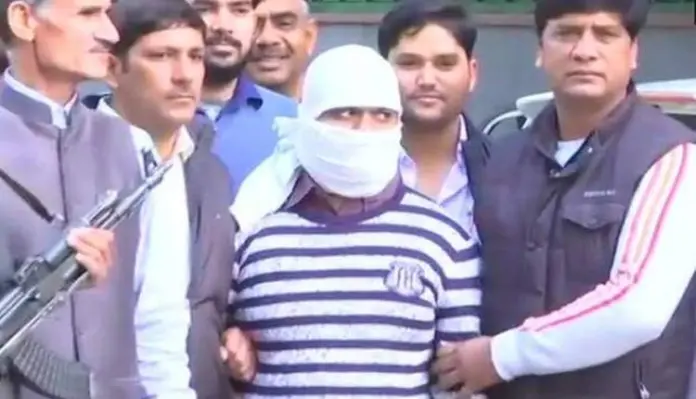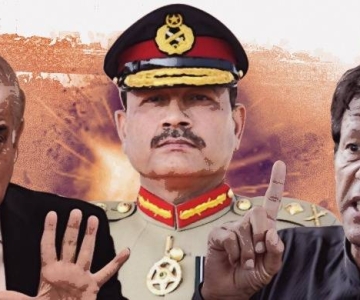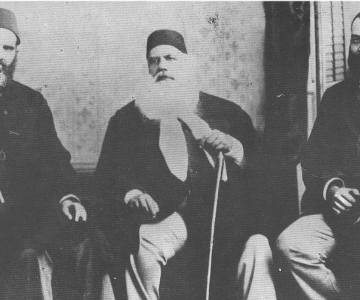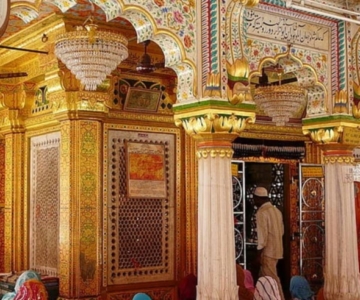, a patriotic Indian writes on the predicament of those who want to stay away from the missions, the purges and typecasting of Indian media:
Terrorists once again played with deadly bombs in Delhi on September 13, bringing the usual destruction of life and property. By now, we Indians have become quite accustomed to death and destruction — man made or natural.
My very first reaction was: Will it be Indian Mujahideen (IM) once again? Within minutes of the blasts IM claimed it was behind the savagery. I felt like crying and shouting from the rooftop that whatever the terrorists have done in the name of Islam was wrong; that I am an Indian, who also happens to be a Muslim. I would not rejoice at the bleeding of my very own countrymen. Then, exactly six days later at around 11 am I was awakened by the cacophonic sound of my mobile. My colleague was on phone and asking: Are you okay? There’s an encounter going on in your area. The news snatched away my sleep; it became a victim of terror.
Then followed a barrage of calls from my friends — most of them Hindus — to enquire about my well-being. I was so embarrassed, uncomfortable, conscious of a strange guilt, defensive and uneasy. And, I was staying in an area being projected as the “safe haven” for terrorists.
How could I gulp the hard fact that my neighbours were those who had partied over the killing of innocent people? Jamia Nagar was on the national map within hours of the encounter and that also for the worst possible reason.
Then came the psychological bomb — one of the terrorists caught following the police encounter was my namesake. I cannot describe the feeling that I underwent the moment the name Saif was splashed across various news channels. “What the hell?” I could react thus.
The nightmare was not over. At work, while moderating comments on many stories on the incident and its aftermath it was difficult to ignore the bombardment of nasty comments against Muslims. Almost 95 per cent of them demonised Muslims and a major chunk of the surfers suggested that Muslims be thrown out of India. The ground beneath my feet shook. I kept working, but nothing registered. I wanted to cry. I felt like a helpless alien in my own country. I had never thought of myself as being part of anything but the mainstream — the very premise of that was crumbling in front of me.
That day, the usually intrepid journalist in me lost out to the bewildered youth. I did not feel like going to Batla House (the place of the encounter), as I was hugely disturbed. For the first time in my life I felt that I was the “other,” or so I was made to feel. And that I was the “enemy within,” was a suspect, a potential terrorist and that, the phrase “terrorists have no religion” was no longer valid.
The more the media discussed about the terrorists’ profiles, the more insecure I felt. Now the terrorists were no longer some gun-toting, bearded, rustic and madrassa-educated lot. They were suave, university-educated, guy-next-door types.
The new face of terror has really put the moderate, peace-loving Muslim youth in a quandary.
The day after the encounter, I actually went to Batla House in Jamia Nagar to take stock of the situation myself. People were wary of talking to strangers, the now proverbial “siege within” was obvious, the near absence of trust in policemen was alarming and the air was filled with various conspiracy theories alleged to have been hatched by the government.
In fact, the complete lack of trust in police among the people in the area is an alarming situation; it’s a complete communalisation of their outlook. The sooner the government acts, the better it would be for the country.
I found myself so out of place here but even then I could not consider them as the “other”. In fact, they are Indians like you and me. It’s only their low level of education and thereby the lack of job opportunities that have perpetually marginalised them.
This area is a forced ghetto where affluent, poor, students, teachers are crammed in such a small space. What has been the government’s initiative to bring this huge area to the mainstream? Instead the government’s apathy is palpable — the entire area has just one ATM (SBI) and there is no resident welfare association. The UPA government’s token gesture to open up more bank branches in Muslim areas actually drew the Opposition’s ire for what they called “Muslim appeasement”. Tour of the area to know how liberally Muslims have indeed been appeased by successive governments since Independence. There are no civic amenities, large parts of the area do not even get MCD water supply and in this area talking about parks would be a big joke.
Terrorists are a fringe minority — they do not belong to communities. They function outside of communities. Most educated Muslim youth are like I am — your co-worker with corporate dreams, social dreams of working alongside every Indian to build a great nation. Putting all the blame on all Muslims is easier option, but it will not help in bringing India’s largest minority out of their current morass.
The fight against terror will be fought on various fronts and Muslims’ continued backwardness will certainly not help the cause. The discourse of “us and them” needs to change. Bracketing Muslims as the “other” will only continue to aggravate the problem. Lets consider it as our problem, India’s problem; and work together to defeat the cancer of communalism, mistrust and terrorism.
(Saif Khalid is a Senior Copy Editor with NDTV.com. The views expressed here are his own and not of NDTV.)



